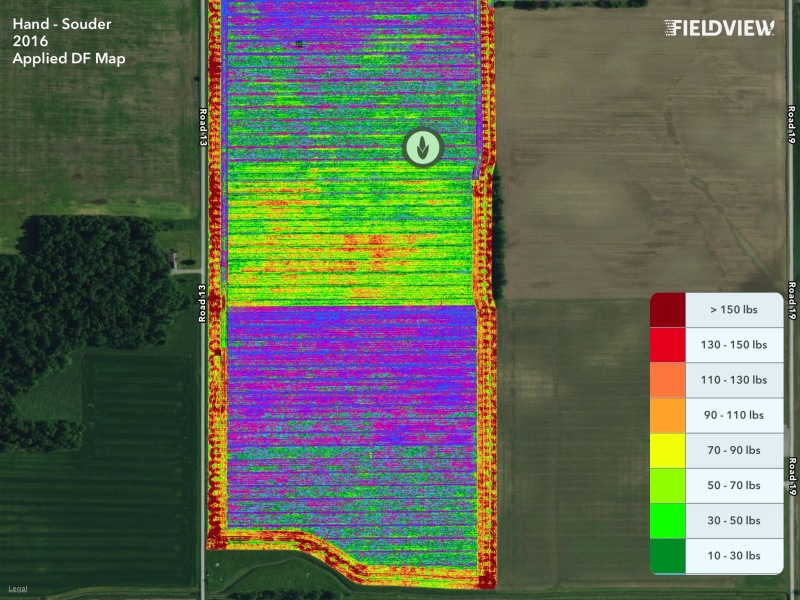farmercasey
Agricultural
I am looking at converting my drill (soybean and wheat planter) to hydraulic drives to allow for variable rate and clutching; it is currently ground driven. 30' of drill will be divided into 4 - 7.5' sections, which will be automatically controlled.
System design as follows:
[ul]
[li]Monitor supplies PWM signal for rate control and 12V output for each section control (uses radar and RTK corrected GPS for speed input and application control)[/li]
[li]Brand EFC proportional valve[/li]
[li]5 motors in series:[/li][ul]
[li]Idler motor constantly running a shaft sensor (360 pulses/rev) - nil torque requirement[/li]
[li]4 motors to turn the seed meter shafts, each with a solenoid valve plumbed to bypass to provide clutching for the section - 30 in-lbs of torque on each of these[/li][/ul][/ul]
Target rpm range for the motors is 0-50. Motors will be driving a #40 chain, so negligible shaft load. Looking at around a 15 in/rev displacement to be in a reasonable flow range for the proportional valve. Smooth operation at slow speed and low leakage are very desirable.
Now the question: I'm trying to pick out the best motors for the application. I have been looking mainly at Char-Lynn because of ease of availability. A T series (spool valve, geroler) with the slow speed valving option sounds good,but I don't see that I'd be running the recommended 300 psi difference between A and case pressure - I don't know how critical that is with such a low load. A 2000 series (disc valve, geroler) would be another option - the application charts show lower flows and speeds than the spool valve designs. Does a disc or spool valve tend to handle low speeds better and does one inherently tend to leak less than the other?
Thanks for your time, Casey
System design as follows:
[ul]
[li]Monitor supplies PWM signal for rate control and 12V output for each section control (uses radar and RTK corrected GPS for speed input and application control)[/li]
[li]Brand EFC proportional valve[/li]
[li]5 motors in series:[/li][ul]
[li]Idler motor constantly running a shaft sensor (360 pulses/rev) - nil torque requirement[/li]
[li]4 motors to turn the seed meter shafts, each with a solenoid valve plumbed to bypass to provide clutching for the section - 30 in-lbs of torque on each of these[/li][/ul][/ul]
Target rpm range for the motors is 0-50. Motors will be driving a #40 chain, so negligible shaft load. Looking at around a 15 in/rev displacement to be in a reasonable flow range for the proportional valve. Smooth operation at slow speed and low leakage are very desirable.
Now the question: I'm trying to pick out the best motors for the application. I have been looking mainly at Char-Lynn because of ease of availability. A T series (spool valve, geroler) with the slow speed valving option sounds good,but I don't see that I'd be running the recommended 300 psi difference between A and case pressure - I don't know how critical that is with such a low load. A 2000 series (disc valve, geroler) would be another option - the application charts show lower flows and speeds than the spool valve designs. Does a disc or spool valve tend to handle low speeds better and does one inherently tend to leak less than the other?
Thanks for your time, Casey


